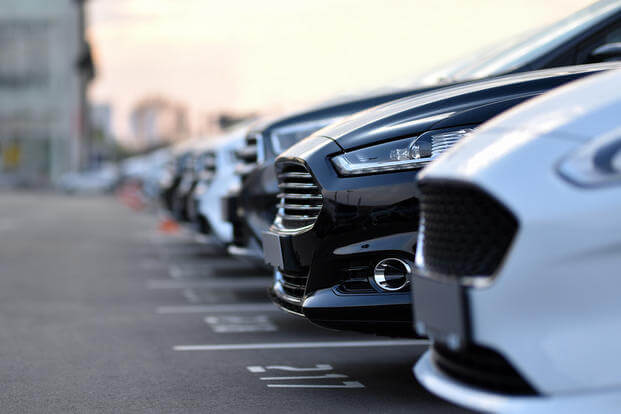How satisfied are you with your present vehicle? Unless additional safety features, increased fuel economy or other compelling reasons really justify the cost of a newer model -- or you're sick of driving the same old workhorse year after year -- repairing a good older vehicle and continuing to drive it is often a wiser move.
If you decide to replace your old car, you face another decision: whether to buy a new vehicle or a used one. Each option offers advantages and disadvantages, so keep an open mind until you have all the facts.
Top Reasons For Buying New
The allure of new cars is compelling: shiny paint in myriad rainbow colors, gadgets and doodads that blink and glow and who can resist that new car smell? But there are more -- and better -- reasons to consider a new car.
Safety features. The best reason for buying a new vehicle is to replace one that lacks such vital safety features as airbags, integrated child seats, structural reinforcements and the like.
Technological improvements. In recent years, innovations in steering and suspension, fuel injection and basic equipment have resulted in vehicles that get better gas mileage, run cleaner and can go for long periods of time between tune-ups and other periodic maintenance.
No past problems, neglect and repairs. Who wants to buy a car that weeks earlier was a plant holder in someone’s backyard? A new car is all your own, free of the mistakes, mishaps and poor choices of a previous owner. It is free of battle scars and aging components that can plague an older vehicle. And while some new cars have problems of their own due to faulty manufacturing or newfangled systems, there’s no denying that a new car is more attractive and prestigious than most older models.
Tax benefits. If you use your vehicle for business purposes it makes sense to buy new so you can write off depreciation and mileage costs. See your tax consultant or read the tax preparation instructions to learn more.
Although owning a brand-new car is nice, there are several very good reasons to buy a good used vehicle instead.
Reasons to Consider a Used Car
Used vehicles cost less to own and maintain. A survey by the Consumer Federation of America advises that "buying a used car will reduce your ownership and operating expenses by about 50%." Perhaps the best proof of this is that, currently, the average age of vehicles in the United States is nine years — the highest in half a century.
Cheaper to keep on the road. Lower registration, licensing fees and insurance premiums for new cars are much higher than for used cars.
No destination, "dealer prep" and shipping costs to pay – No hidden costs!
Better quality. You can keep a well-made vehicle running beautifully for a lot less than you'd spend on new-car payments, fees and premiums, even if you rebuild the engine or restore the body. A well-built automobile that has been properly maintained can stay on the road for over 150,000 miles, even though most of us think our cars are played out at half that mileage.
Less depreciation. New cars can depreciate 30 to 40% in only two years, and buying or leasing a new vehicle can continue to cost you several hundred dollars a month for an average of three years. As one Consumer Reports Buying Guide put it, "A new car depreciates 20 to 30% the minute you drive it off the dealer's lot." Why not buy a two- or three-year-old used vehicle and let some other hotshot take the loss?
Used cars can be classics. While new cars devaluate, many older cars are gaining in value and prestige. Owning a really classic piece of automotive engineering can be a great status symbol and may be wiser (and more impressive) to forget about the new luxury models and look for an older classic car instead.
Stay on Top of Your Military Benefits
Military benefits are always changing. Keep up with everything from pay to health care by subscribing to Military.com, and get access to up-to-date pay charts and more with all latest benefits delivered straight to your inbox.






















